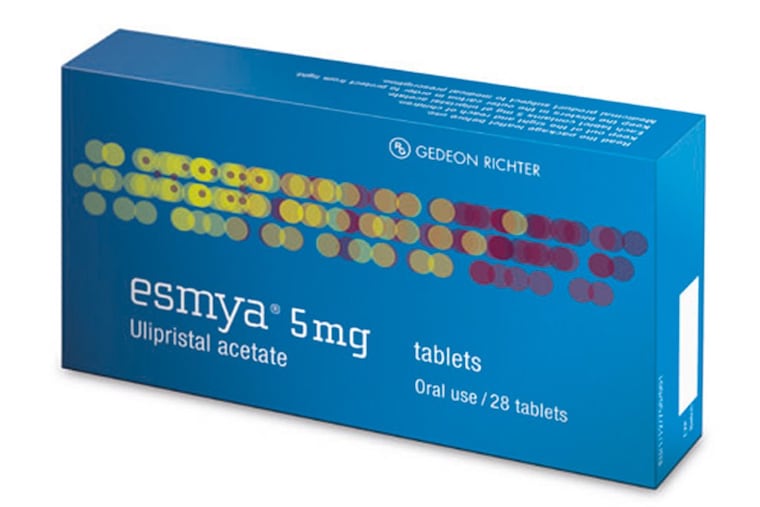Hoping for FDA approval: The first pill to treat bleeding from uterine fibroids
If the drug is approved by the FDA next spring, it would be the first oral medication in this country for a bleeding problem that plagues millions of women.

Pharmaceutical company Allergan presented new data this week bolstering the effectiveness of its pill to treat abnormal bleeding caused by uterine fibroids.
If the drug, known as ulipristal acetate, is approved by the U.S. Food and Drug Administration next spring, as Dublin-based Allergan hopes, it would be the first oral medication in this country for a problem that plagues millions of women. It is already approved in Europe and Canada to treat moderate to severe symptoms of fibroids.
The drug works by selectively blocking the hormone progesterone, which is involved in controlling the growth of the uterine lining.
In January, Allergan, which has a facility in Center Valley, Pa., announced positive results of a pivotal study that randomly assigned 432 women to ulipristal acetate or a placebo. More than half of the women taking 10 milligrams a day of the drug, and about a third of the women taking a lower dose, were free of abnormal bleeding 10 days into a 12-week treatment course. Rates were even better for women who continued on the drug for another 12 weeks. Women on placebos got no relief.
The latest analysis, presented Monday at the annual meeting of the American Society for Reproductive Medicine, looked at the impact of race and body weight, factors that increase the chance of developing the fibrous uterine growths. In the pivotal trial, 67 percent of patients were African American, and 57 percent were obese.
The drug showed similar effectiveness regardless of weight. Among black women, the drug suppressed bleeding in 49 percent on the higher dose, 35 percent on the lower dose. Non-black patients had even higher rates (68 percent and 60 percent).
The most common side effects of the drug were headaches and hot flashes, suffered by less than 10 percent of the women.
"There is a clear unmet medical need for new treatments for uterine fibroids," said Arizona reproductive endocrinologist Millie A. Behera in an Allergan press release. "I am hopeful that, if approved, the availability of a once-daily oral medication will encourage women to have a discussion with their doctor about their options."
Current options — including drugs that target hormones, procedures that destroy the uterine lining, or surgical removal of the fibroids or entire uterus — all have big drawbacks. A device called an electric morcellator, which minces fibroids and removes the tissue through tiny incisions, has been largely abandoned because in rare cases it can disseminate an undetected uterine cancer. Philadelphia cardiac surgeon Hooman Noorchashm and his late wife, anesthesiologist Amy Reed, campaigned for a ban on morcellators after her cancer was spread during a hysterectomy.
Allergan estimates five million women might be candidates for its treatment if approved. The company has not announced a name, but it markets ulipristal acetate as Fibristal in Canada. In Europe, the drug is available as Esmya from Gedeon Richter, an Allergan partner.